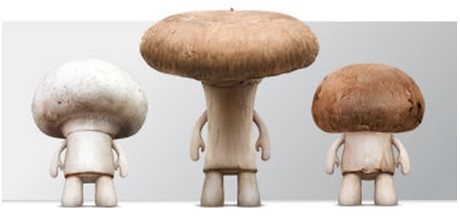Long-recognised as a food low in fat and salt, the research indicates mushrooms also have a lot to offer. They’re a good source of biotin, niacin, pantothenic acid, riboflavin and selenium, and a source of vitamin B6, copper and phosphorous.

There’s also good news for parents: Several of the nutrients in mushrooms are important for promoting growth and development in children.
Used in soups, pastas, on pizzas, in salads, casseroles, stir-fries, and kebabs, mushrooms are one of the few foods embraced by both meat-lovers and vegetarians.
Yvonne Clyne, National Sales Manager, Meadow Mushrooms says 100% local production means mushrooms are also sustainable and traceable. “One of the other benefits is how easy mushrooms are to prepare. That means you’re not wasting time, or water.” (She recommends just wiping mushrooms quickly with a paper towel or cloth.)
“Year-round availability also makes them a product that’s perfect for regular inclusion in your family’s diet; or your signature dish when you’re entertaining.”





